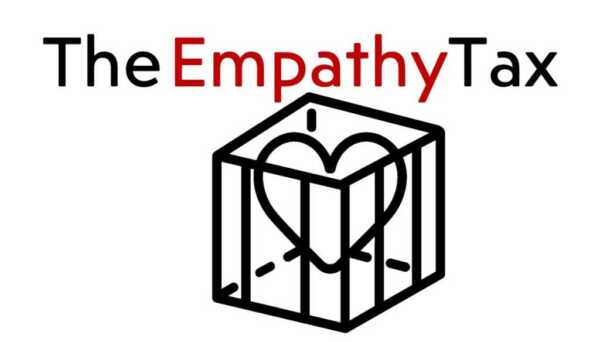
by Sara Ross | Mar 30, 2021 | Burnout, Emotional Intelligence, Leadership Vitality, Management, Personal Leadership, Stress, Women Leadership
The frustrating challenge women are facing in the workforce
I was recently invited to speak on a panel discussing the pandemic’s impact on the future of work. As part of an all-women panel, I shouldn’t have been surprised when the host opened the conversation with the following sentiments, “In a time that demands empathy from leaders, this is the opportunity for women to truly shine.”
As someone who has studied Emotional Intelligence and Empathy in the workplace for well over a decade, the first question was thrown to me, which was, “why is empathy so important right now?”
I was prepared for the question. The challenge was that I couldn’t get past the framing of the conversation. Admittedly, I am not always great at choosing my battles. Although there was a voice in my head that said, “Let it go, Sara, just answer the question…”
The louder voice said, “Take that on, Sara.”
Here is why; the framing of the panel discussion highlights the expectation that women are empathetic. This may not seem like a big deal, but here is the challenge. Data shows time and time again that when men display empathy, it is seen as distinct and favorable leadership ability, yet it’s simply the expectation when women display it. This doesn’t mean that a higher level of empathy doesn’t translate into more effective leadership for women. It does. The problem is that demonstrating empathy is perceived as a baseline expectation for women and NOT a distinct leadership skill as it is for their male counterparts.
Let’s get clear on a few things. First, empathy in leadership is a skill – period. Are some people more naturally empathetic? Yes. However, to a be exceptionally good at it requires putting thoughtful effort into strengthening it.
Second many women in the workforce are experiencing an additional layer of pressure. As reported here, “women are leaving the workforce at four times the rate as men. The burden of parenting and running a household while also working a job during the pandemic has created a pressure cooker environment in many households, and women are bearing the brunt of it.” Emotional exhaustion has skyrocketed by almost 73% in women who are balancing work and home obligations.
Third, cognitive empathy is a labor-intensive competency to practice. It is incredibly challenging to demonstrate empathy when you are drained of energy. The brain science of empathy backs that up.
The problem occurs when women are perceived as not being empathetic. When this happens (because it will happen for all the reasons I just shared), it is held against women far more than when men display the same empathy-lacking behaviors in identical situations.
But before getting upset, it is important to acknowledge that those who evaluate women most harshly when there is a perceived lack of empathy, especially when it comes to recognizing the additional layer of pressure most working women are experiencing in the pandemic – are actually other women. Research shows that women hold onto anger and hurt longer when another woman breaks their trust versus a man doing so in the workplace.
This double standard is an extra THIRD layer of pressure for women in the workplace. As I was speaking at a women’s event, recognizing where we as women are inadvertently perpetuating it is an important place to start.
My suggestion is that women need to continue to support women and watch the double standard we have with one another. If we are frustrated by people expecting women leader’s primary strengths to be collaboration, empathy, and supportiveness, then we need to be careful not to punish women more harshly when those expectations aren’t met. When empathy is shown, we need to acknowledge it as a desirable leadership quality, regardless of gender. I believe this is a powerful way women can lift other women up.
“Be the woman who fixes another woman’s crown without telling the world that it’s crooked.”
Author Unknown
The reality is, we all benefit from the empathy of our organizations, leaders, and colleagues, which means we all need to work on demonstrating empathy when people aren’t at their best.
Luckily, this response triggered a powerful and empathetic conversation across our panel.
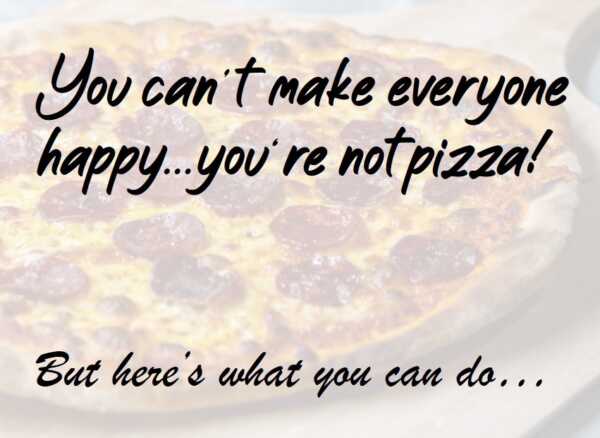
by Sara Ross | Feb 2, 2021 | Personal Leadership, Resilience, Stress, Women Leadership
Working on a book has meant I have needed to regularly remind myself of this. And I’m not going to lie, putting it in the context of pizza always makes me smile while also making it an easier reality to accept.
If you often find yourself overcommitted, here are three rules I hold myself accountable to when I need to say no to something:
Be Quick.
Be Kind.
Be Clear.
Be quick to respond when your answer is no and allow the other person time to explore alternative options. It also challenges you to be more thoughtful and decisive. When we worry that we’ll disappoint people, we often procrastinate on making the decision AND delivering the response.
Be clear in your response. Another way we avoid disappointing people is by convoluting the response with a non-committal answer. Be clear in what you can and can’t do and then ensure you follow through. “Maybe later” and “let me see what I can do” response types are unclear and unfair to the person making the request. People are often most disappointed and angry when surprised, so take a no surprise policy.
Be kind in delivering your answer. It may not be your priority, but it is someone’s, so respond with graciousness and never underestimate the power of “thank you.”
The reality is that even after doing all three of these people may be disappointed, but chances are much higher that they’ll respect you and feel respected by you.
Demonstrating respect is the highest form of kindness.
Besides, treating others with respect (including yourself), has a much longer and lasting impact than simply trying to make everyone happy.
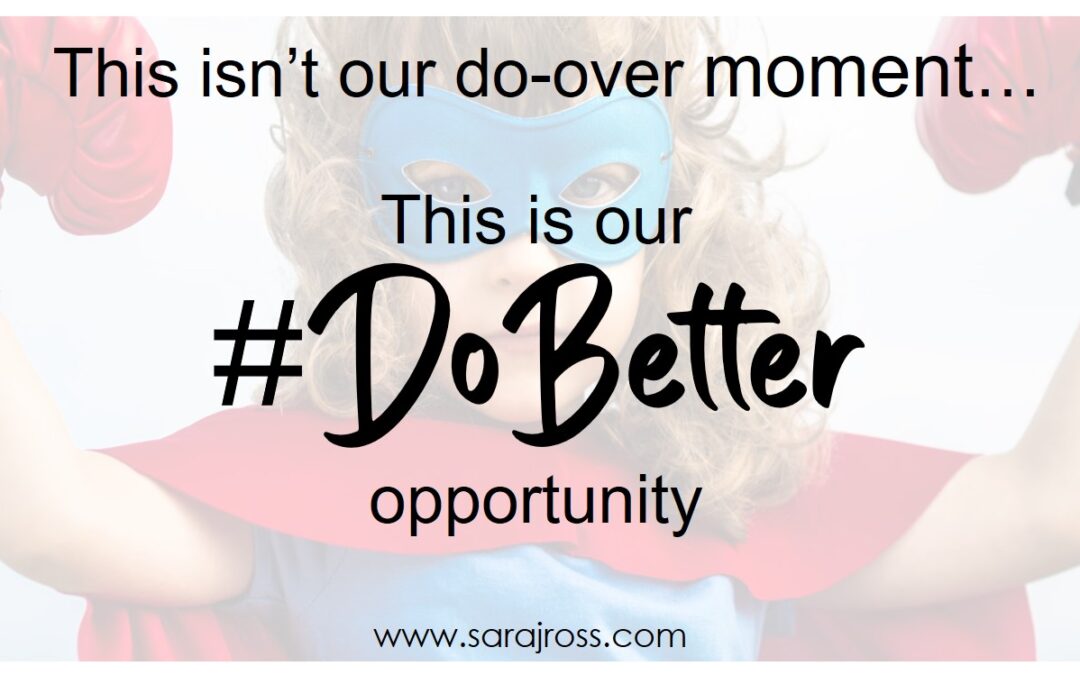
by Sara Ross | May 5, 2020 | COVID-19, Leadership Vitality, Personal Leadership, Resilience, Stress
I’ve heard many people say the pandemic is our chance at a “Do-Over.”
Although I understand the sentiment, I disagree. That mindset seems backward.
Instead, I suggest this is our “Do Better” opportunity.
It’s not just semantics.
A ‘Do-Over’ mindset suggests that we erase away the past and begin anew.
But the risk of this mindset is that we approach the future from a place of fear, cynicism, and scarcity in an attempt to avoid the losses, hurts, heartaches and mistakes of the past.
A ‘Do Better’ mindset suggests that we build on and use our learnings, losses, and acknowledgments of what was and wasn’t working to get stronger.
It challenges us to accept our mistakes, take a hard look at our beliefs, be thoughtful about our decisions, and honest with the consequences of our actions.
It allows us to approach the future with courage and bravery. To use empathy to connect our differences and to extract meaning and knowledge from our adversities.
As we start to prepare for opening back up, I challenge you to think about how you can take something that has impacted so many people in so many different ways and hashtag#DoBetter in the future.
Let’s make our new normal a better one.
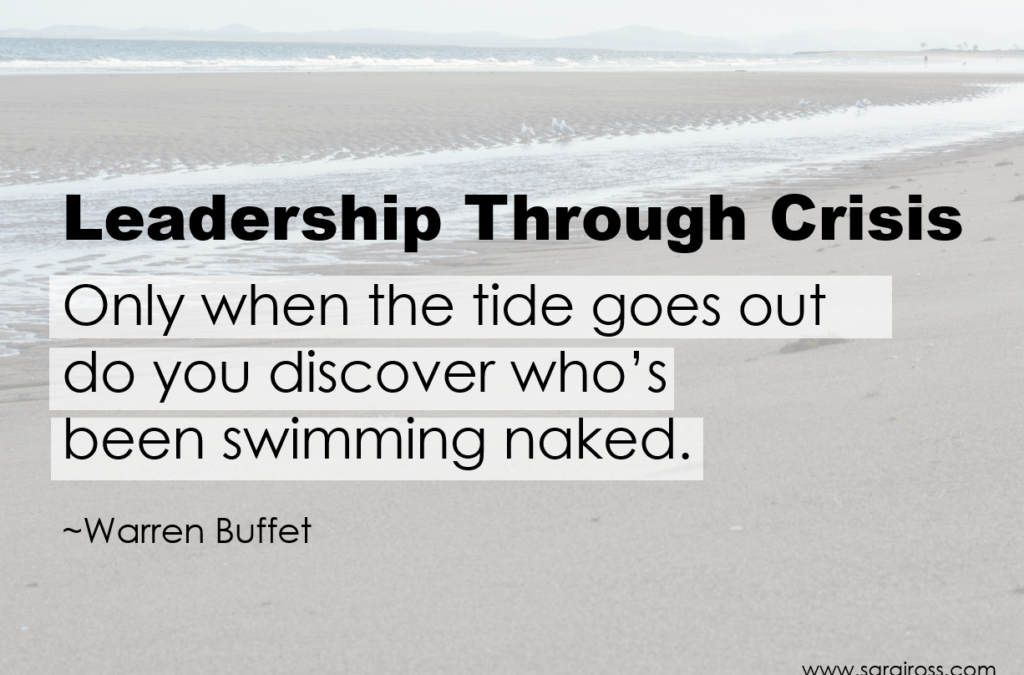
by Sara Ross | Apr 24, 2020 | Emotional Intelligence, Leadership Vitality, Personal Leadership
Leadership is hard.
As someone who studies, writes, coaches and speaks about how to develop exceptional leaders, I have seen how a crisis can distinguish the best leaders from the rest.
Never are strong leaders needed more than amid crisis. This is also when it is hardest to be an exceptional leader.
In crisis is where the ‘rubber hits the road’ when it comes to leadership. This is when a leaders proclaimed values are tested. It is much easier to be a good leader when everything is going well. But that’s not when we need leadership. Leadership is tested in the tough times – when the tide goes out.
Only when the tide goes out do you discover who’s been swimming naked. ~Warren Buffet
Earlier this week, I had a coaching client who was distraught about a decision that needed to be made about letting people go.
I have heard some of the most beautiful and compassionate stories of how companies have executed this hard decision. Unfortunately, I have also heard other examples that I’ve had a hard time understanding.
Today, I would like to say thank you to all of the leaders who’ve lost sleep trying to figure out how to save businesses and jobs;
Who are sacrificing just as much as they are asking their people to sacrifice;
Who showed up and engaged human to human, even though most were forced to communicate these difficult messages through screens;
Who made sure their people understood the contribution they had made to the company’s success;
Who pushed for their people to be able to say goodbye to colleagues and clients because the decision was due to circumstance not performance;
Ultimately, those who put people over process and did it with care, kindness, and compassion.
In crisis, the majority will over-focus on what needs to be done and under-focus on how they will do it.
It is these leaders, who focus on how to demonstrate their values, who take ownership of their impact, who will make the hard decisions but communicate them in a way where people feel seen, heard and valued; these are the leaders whose positive legacy will stay with us long after the crisis is behind us.
Following our call, my client realized he had been fighting the wrong battle – the decision that had to be made.
Accepting it was leadership of the business.
But his leadership was on full display when he started fighting for how he was going to communicate it – that is the leadership of people…even after the tide goes out!

by Sara Ross | Mar 25, 2020 | COVID-19, Personal Leadership
Biases influence us all. The funniest part is that we are biased towards believing we aren’t biased, or at least not as much as other people. Unfortunately, this is one reason “flattening the curve” is so challenging.
To address this challenge requires all of us to recognize how our beliefs influence our decisions. There is one particularly misguided belief that seems especially prevalent at the moment. And before you shake your head in agreement, make sure you haven’t fallen into it.
1) People believe that they represent the “exception” rather than the “rule.”
For example, on a walk yesterday, I came across a group of six people standing close together talking. As I approached they said, “Don’t worry, we’re all good, we know each other.”
Because they knew one another (exception), they excluded themselves from the suggested social-distancing practices (rule).
Adding to this is that we then have a biased tendency to discount and even rationalize our actions, BUT we then judge the collective actions of others.
Consider this conversation, “People need to take this seriously; they should be fined for not following the rules… I’m going to call my hairdresser and see if she can squeeze me in an appointment before they close.”
Do you want to know how I know this conversation happened? Because it was ME!
I did catch the hypocrisy of my comment the moment I said it, but it is also why I wrote this.
At the end of the day, it is because we are uncomfortable, we feel inconvenienced, and we want our lives to remain as normal as possible. We are human.
We are also part of a society trying to stop a pandemic, and as the saying goes, “We need to check ourselves before we wreck ourselves!”
Perspective matters. The desert is made up of specks of sand and oceans are the individual collection of droplets of water. We are the collective, not the exception. The combination of our small, but positive actions to socially-distance will have an out-sized impact on flattening the curve.
And just for the record, I did not get a haircut!
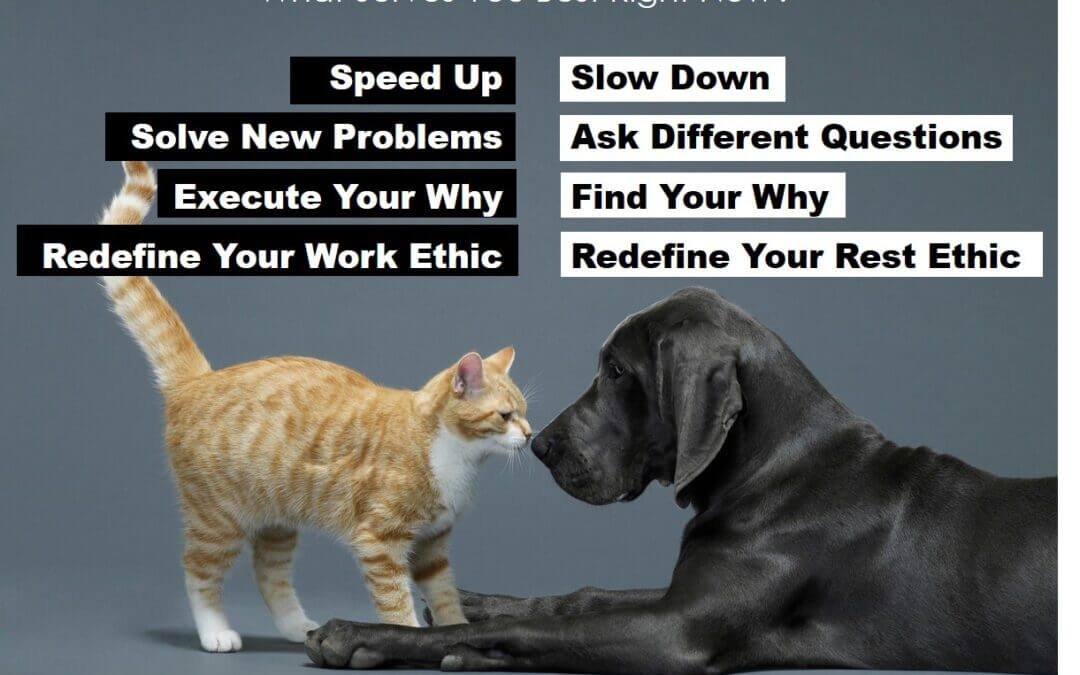
by Sara Ross | Mar 24, 2020 | COVID-19, Personal Leadership
This is not the time to compare yourself to others, although I appreciate it is a very tempting thing to do.
Resist it.
Instead, use this time to look inside and ask,
“What will serve me best?”
“My family best?”
“My company, team, clients, patients best?”
My community best?”
“Our society best?”
There is no wrong answer; there is only your answer.
My request is to let this moment, this crisis, be of service in some way.






